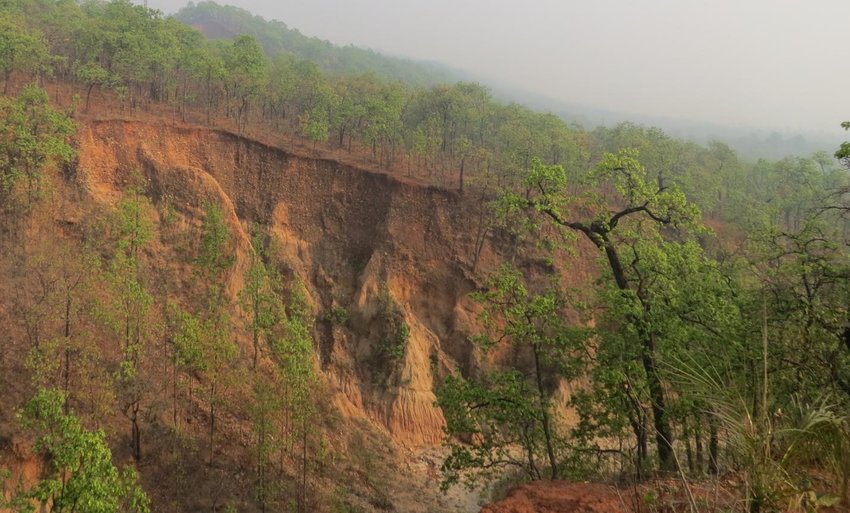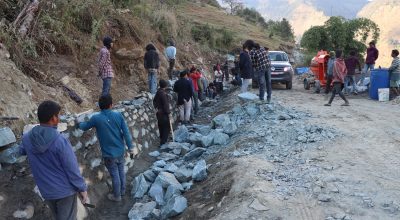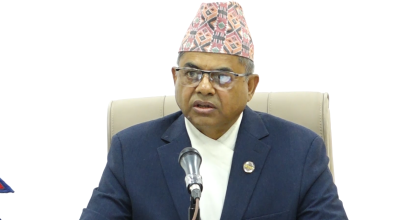
Pragati Dhakal
Kathmandu, Dec 4: The government is searching for new donor agencies to fund bamboo plantation projects aimed at conserving the fragile Chure region and boosting the economy. Earlier donor agencies had withdrawn after failing to secure timely agreements with relevant authorities.
The President Chure-Terai Madhes Conservation Development Committee revealed that potential donors had withdrawn their proposals due to delays in approvals from the Ministry of Forests and Environment. France-based donor organization Reforest Action had offered a grant of Rs 4.88 billion (USD 37 million) for the bamboo plantation initiative but retracted the offer after prolonged delays.
Committee Chairperson Dr. Kiran Paudel stated that while previous donors have exited, efforts are ongoing to engage new ones. “We had secured a donor after extensive effort, but delays in project approval by the ministry led to their withdrawal,” Dr. Paudel said. “The ministry has now shown a positive stance toward bamboo plantation, and we are in discussions with the Asian Development Bank (ADB) for funding.”
According to Dr. Paudel, the committee has proposed a funding package of USD 30 million (approximately Rs 4.07 billion) to ADB, with 50% as a grant and 50% as a loan. The committee is advocating for a higher grant proportion to reduce loan dependency. Bamboo plantations could help Nepal reduce carbon emissions, making the country eligible for financial benefits through carbon trade markets.
Bamboo Plantation Plans
The committee plans to plant 20 million bamboo saplings, with 10 million in eastern and 10 million in western regions of Chure.
The project is expected to cost USD 100 million, requiring external funding due to insufficient internal resources. Dr. Paudel highlighted bamboo’s benefits, including soil conservation, job creation, green economy promotion, and carbon emission reduction.
Bamboo’s deep roots help recharge groundwater, preventing landslides and soil erosion.
Dr. Susmita Dhakal, a board member, emphasized bamboo’s environmental and economic benefits, stating, “Bamboo grows rapidly, enhances greenery, and supports biodiversity while creating local employment opportunities.” Bamboo products, such as baskets, furniture, and construction materials, could also boost income-generating activities.
Need for a Campaign
Former Forest Secretary Dr. Annapurnanand Das, an expert on bamboo, advocated for a campaign-style approach to promote bamboo plantations.
He described bamboo as a renewable and eco-friendly plant with high utility, including use in food, paper, textiles, and organic plastics. Its demand is high both locally and internationally.
Geologist Dr. Subodh Dhakal noted bamboo’s effectiveness in controlling erosion in Chure’s fragile landscape. Its roots stabilize soil, preserve water sources, and reduce the risk of landslides. Similarly, disaster management expert Dr. Dharma Raj Uprety pointed out bamboo’s role in mitigating flood risks by minimizing soil erosion and maintaining river ecosystems.
Challenges and Benefits
The Chure region faces severe environmental threats, including soil erosion, landslides, and groundwater depletion.
Planting bamboo could address these issues while supporting small and medium-scale industries and fostering ecological balance.
With strategic implementation, bamboo plantations could pave the way for a greener economy and long-term conservation of the Chure region. #chure #nepal #bamboo












